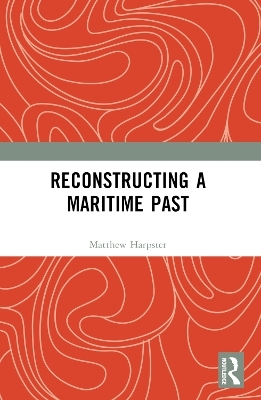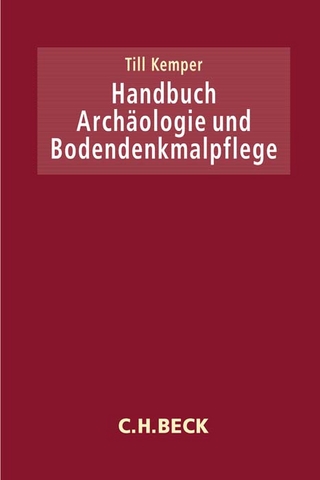
Reconstructing a Maritime Past
Routledge (Verlag)
978-0-367-63533-6 (ISBN)
- Titel z.Zt. nicht lieferbar
- Versandkostenfrei innerhalb Deutschlands
- Auch auf Rechnung
- Verfügbarkeit in der Filiale vor Ort prüfen
- Artikel merken
Reconstructing a Maritime Past argues that rather than applying geo-ethnic labels to shipwrecks to describe “Greek” or “Roman” seafaring, a more intriguing alternative emphasizes a maritime culture’s valorization of the Mediterranean Sea. Doing so creates new questions and research agendas to understand the past human relationship with the sea.
This study makes this argument in three sections. Chapters 1 and 2, contrasting intellectual histories of maritime archaeological interpretive approaches common in Northern Europe and the Mediterranean, propose that the former perspective – which embodies contemporary and fluid perceptions of culture – is a better theoretical framework for future research. Chapters 3–5 re-interpret the corpus of submerged sites in the Mediterranean Sea with this approach, arguing that this dataset does not represent “Phoenician,” “Muslim,” or “Byzantine” seafaring, but the practices of a maritime culture. Key to this section is the author’s method that utilizes superimposed polygons to model patterns of maritime activity, generating centennial results at different scales. Having built the models of a maritime culture’s valorization of the Mediterranean Sea, Chapter 6 contains the first comparisons of these models to other datasets, questioning the relevance of textual media to understand maritime activity, while finding closer analogues with other archaeological corpora.
By deconstructing interpretive methods in maritime archaeology, offering a new synthesizing interpretive approach that is scalable and decoupled from past perceptions, and critically examining the applicability of various media to illuminate the past maritime experience, this book will appeal to scholars at various stages of their careers.
Matthew Harpster completed his Ph.D. degree at Texas A&M University, has held teaching and research positions at the Massachusetts Institute of Technology, Eastern Mediterranean University, and the University of Birmingham, and is presently the Director of KUDAR, the Koç University Mustafa V. Koç Maritime Archaeology Research Center in Istanbul, Turkey. In addition to his interests in maritime cultures and maritime cultural landscapes, his research also includes the history of maritime archaeological thought and practice, and maritime cultural heritage practices.
Introduction; Chapter 1 Interpretive practices and interpretive problems; Chapter 2 Theoretical and methodological foundations; Chapter 3 Data collection, interpretation, and visualization; Chapter 4 Modelling maritime cultures and landscapes; Chapter 5 Variation and places; Chapter 6 Case studies; Conclusions
| Erscheinungsdatum | 28.08.2024 |
|---|---|
| Zusatzinfo | 3 Tables, black and white; 56 Halftones, color; 97 Halftones, black and white; 56 Illustrations, color; 97 Illustrations, black and white |
| Verlagsort | London |
| Sprache | englisch |
| Maße | 156 x 234 mm |
| Gewicht | 460 g |
| Themenwelt | Geisteswissenschaften ► Archäologie |
| ISBN-10 | 0-367-63533-X / 036763533X |
| ISBN-13 | 978-0-367-63533-6 / 9780367635336 |
| Zustand | Neuware |
| Informationen gemäß Produktsicherheitsverordnung (GPSR) | |
| Haben Sie eine Frage zum Produkt? |
aus dem Bereich


